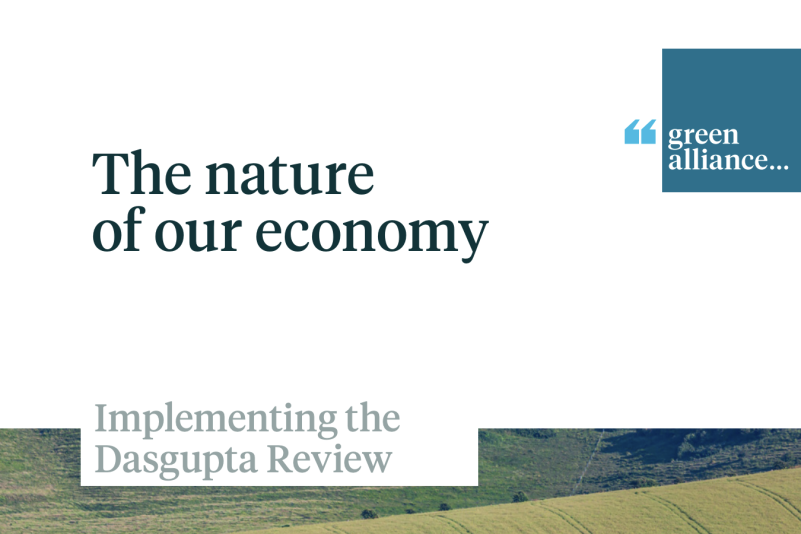The nature of our economy: implementing the Dasgupta Review

This Green Alliance report builds on the valuable findings from the Dasgupta Review, offering a manual for policy makers on how to factor the services nature provides into economic decisions over the short (within a year), medium (to the end of the current parliament) and long term (over the next decade or more).
The Dasgupta Review was the high level report on the economics of biodiversity, commissioned by the Treasury from the eminent economist Professor Sir Partha Dasgupta and published in 2021. It showed how mainstream economics ignores the true value of nature to the economy. As a result, institutions, policies and the financial system, acting together, are depleting nature without control or limits.
Discussing the provenance of the report, Sophia Greacen, Senior policy adviser at Green Alliance, said
"This report is the culmination of conversations with over 60 politicians, civil servants, business people and academics and two years of policy development to translate the ground-breaking Dasgupta Review into actionable steps for the UK government to better embed nature in economic thinking. It looks at the macroeconomic, microeconomic and political picture, making short, medium and long term recommendations."Sophia Greacen, Senior policy adviser at Green Alliance
In this report, Green Alliance outline that while the government is right to push for a higher growth rate, it should ensure that this does not come at the expense of further decline in the country’s nature and biodiversity, undermining long term economic prosperity.
The Dasgupta Review highlighted that, between 1990 and 2014, the UK’s ‘produced capital’ (including manufactured goods and built infrastructure) rose by a fifth but, in the same period, its stock of ‘natural capital’ declined by 30 per cent. This neglect harms the economy. Analysis by the Green Finance Institute suggests that depletion of nature at the present rate will have the effect of cutting UK gross domestic product (GDP) by six per cent by the 2030s.
Nature must be seen as an asset, along with other business assets, for it to be properly accounted for and invested in. The government already intervenes to encourage businesses to protect nature, for example through the biodiversity net gain (BNG) policy in the construction sector. The previous government passed the landmark Environment Act in 2021, enshrining targets for nature protection in law. But decline in the natural world is accelerating. This needs to be reversed through more rapid and profound action to avoid severe economic damage that will harm the nation’s ability to maintain a healthy environment and improve people’s lives.
Significant systemic reasons why nature is disregarded by economics were idenitified by the Dasgupta Review. One was the use of common economic metrics. GDP, by its nature, is an incentive to depreciate natural assets. The system for measuring the state of the public finances discourages investment in maintaining the UK’s stock of natural capital and Bank of England mandates do not recognise the value of protecting nature. More broadly, the economic system allows companies to extract value from nature without encouraging them to preserve it for future business. In this report, Green Alliance argue that the political system is too short term in its decision making cycles to allow politicians to address these challenges.
Click here to read the full report
Click here to visit the Green Alliance website
Subscribe to our Newsletter
A quarterly update of all LUNZ Hub activities, events and news stories.
